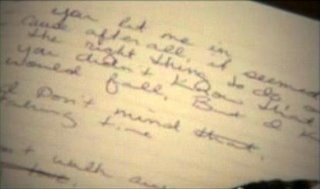Definitely not end-all-be-all definitions, but ones I liked and wanted to share. These are from the site that Tracy shared - worshipmatters.com which has some great articles / blogs on worship from a Biblical perspective. I think we all know by now I have an unquenchable desire to define the worship (which is probably impossible in totality) of one who is truly undefinable.
Harold Best, in his book Music Through the Eyes of Faith defines worship in the broadest sense as “acknowledging that someone or something else is greater – worth more – and by consequence, to be obeyed, feared, and adored…Worship is the sign that in giving myself completely to someone or something, I want to be mastered by it. (pg. 143)
We want to be mastered the objects of our worship. And indeed we are. We worship whatever rules our time, energy, thoughts, longings, and choices. “Those who make them [idols] become like them; so do all who trust in them.” ( Psa. 115:8,
William Temple’s (1881-1944) Readings in St. John’s Gospel.
“Worship is the submission of all our nature to God. It is the quickening of conscience by His holiness; the nourishment of mind with His truth; the purifying of imagination by His Beauty; the opening of the heart to His love; the surrender of will to His purpose – and all of this gathered up in adoration, the most selfless emotion of which our nature is capable and therefore the chief remedy for that self-centeredness which is our original sin and the source of all actual sin.”
Harold Best, in his book Music Through the Eyes of Faith defines worship in the broadest sense as “acknowledging that someone or something else is greater – worth more – and by consequence, to be obeyed, feared, and adored…Worship is the sign that in giving myself completely to someone or something, I want to be mastered by it. (pg. 143)
We want to be mastered the objects of our worship. And indeed we are. We worship whatever rules our time, energy, thoughts, longings, and choices. “Those who make them [idols] become like them; so do all who trust in them.” ( Psa. 115:8,
William Temple’s (1881-1944) Readings in St. John’s Gospel.
“Worship is the submission of all our nature to God. It is the quickening of conscience by His holiness; the nourishment of mind with His truth; the purifying of imagination by His Beauty; the opening of the heart to His love; the surrender of will to His purpose – and all of this gathered up in adoration, the most selfless emotion of which our nature is capable and therefore the chief remedy for that self-centeredness which is our original sin and the source of all actual sin.”
Worship is the activity of the new life of a believer in which, recognizing the fullness of the Godhead as it is revealed in the person of Jesus Christ and His mighty redemptive acts, he seeks by the power of the Holy Spirit to render to the living God the glory, honor, and submission which are His due. (Robert Rayburn, O Come Let Us Worship, pg. 20)
And finally presented by the author of the blog, Bob Kauflin, proposes this definition: Christian worship is the response of God’s redeemed people to His self-revelation that exalts God’s glory in Christ in our minds, affections, and wills, in the power of the Holy Spirit.
Here's the whole link to the beginning of the 4 part series on defining worship http://www.worshipmatters.com/2005/11/defining-worship/





